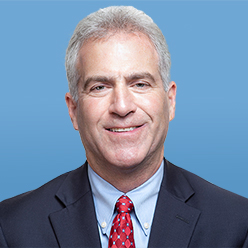The World Health Organization, the United Nations agency that has served as the planet’s premier global health organization since 1948, has undeniably kowtowed to China too much of late.
In response to a Dec. 31 inquiry from Taiwan about people suffering from a strange, pneumonia-like illness in Wuhan, the WHO echoed China’s contention that the illness wasn’t spread through human contact. It took three critical weeks before both China and the WHO acknowledged otherwise.
Meanwhile, Beijing continues to strong-arm the WHO into denying Taiwan’s request to attend the World Health Assembly, the WHO’s most important meeting, as an observer, which it was allowed to do from 2009 to 2016. The WHO’s decision to refuse Taiwan’s attendance — which Washington is now pressuring it to reverse — came after Taiwan elected Tsai Ing-wen, who vowed to preserve Taiwan’s independence, as its president.
For the United States, however, the question is how best to reform a global institution from which the international community has long sought guidance on major health issues — from smallpox and polio decades ago to SARS in 2003, H1N1 in 2009, Ebola in 2014, and, now, COVID-19.
After denouncing the WHO for an “alarming lack of independence” from China and threatening funding cuts to force reforms, President Trump now says that he’ll take the United States out of the WHO altogether and distribute its $400 million-plus of annual U.S. funding “to other worldwide and deserving urgent public health needs.”
Rather than force WHO reforms that reduce China’s influence, however, that move threatens to do the opposite, creating a vacuum that Beijing seems eager to fill, while further fraying U.S. ties with its allies.
This is hardly the first time that Washington has struggled with how best to operate within the network of global bodies. That’s because the United Nations and its subsidiary organs are inherently problematic institutions, driven by member nations that range from the free to the autocratic.
That reality often prompts calls for reform in U.S. foreign policymaking circles. UN critics continue to argue that Washington should create a League of Democracies through which free and democratic nations would take joint action rather than see their ideas rejected within the United Nations or its Security Council.
Successive presidents, meanwhile, have struggled with how best to approach problematic UN bodies like the Human Rights Council, which demonstrates a deep-seated and endemic anti-Israel bias. President George W. Bush sought to distance the United States from the Council and didn’t pursue a U.S. seat, while President Obama secured a seat for America in hopes of reforming the institution from within.
The WHO presents a similar challenge. With more than 7,000 doctors, epidemiologists, and other experts, and with offices around the world, it plays an important coordinating role when the world faces a major health issue. But while it can encourage a member nation to act in certain ways — such as by revealing everything it knows about a strange illness within its borders — it can’t force any country to do anything.
That’s because, like the United Nations, the WHO is dependent on its members to steer the body and finance its activities. The United States has been the WHO’s largest donor, contributing more than $400 million a year in recent years to a WHO budget that, for 2020-21, will total more than $4.8 billion.
To be sure, Trump’s attacks on the WHO have focused much-needed international attention on Beijing’s unsavory tactics toward, and undue influence over, the global health agency. Nevertheless, a U.S. withdrawal creates two obvious problems.
First, it will likely increase, not reduce, Beijing’s influence. After Trump threatened permanent U.S. funding cuts in mid-May, Chinese President Xi Jinping announced that China will provide $2 billion to fight the pandemic.
ADVERTISING
Xi pledged the funds as he spoke before the World Health Assembly, a meeting that Trump skipped altogether, making abundantly clear to the world writ large that Beijing will step in when Washington steps back. A full-scale U.S. withdrawal from the WHO will only enlarge the vacuum that Beijing can fill.
Second, Trump’s decision to withdraw raised hackles among U.S. allies around the world, prompting political and health officials to criticize the move and the European Union to urge him to reconsider.
Trump has a well-established propensity for unilateral action, whether he’s taking America out of the WHO, abandoning arms control treaties and other global pacts, or re-stationing U.S. troops.
America’s allies, however, are far more predisposed to multilateral coordination to address global challenges. Thus, Trump’s decision to abandon the WHO — like his recent suggestion that he will invite Russia to the next G-7 meeting — will further complicate America’s efforts if it ever needs to rally its closest friends.
Lawrence J. Haas, senior fellow at the American Foreign Policy Council, is the author of, most recently, "Harry and Arthur: Truman, Vandenberg, and the Partnership That Created the Free World."
